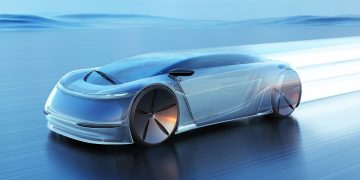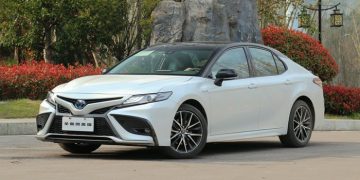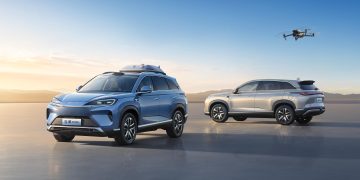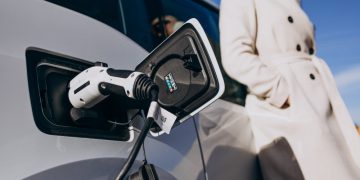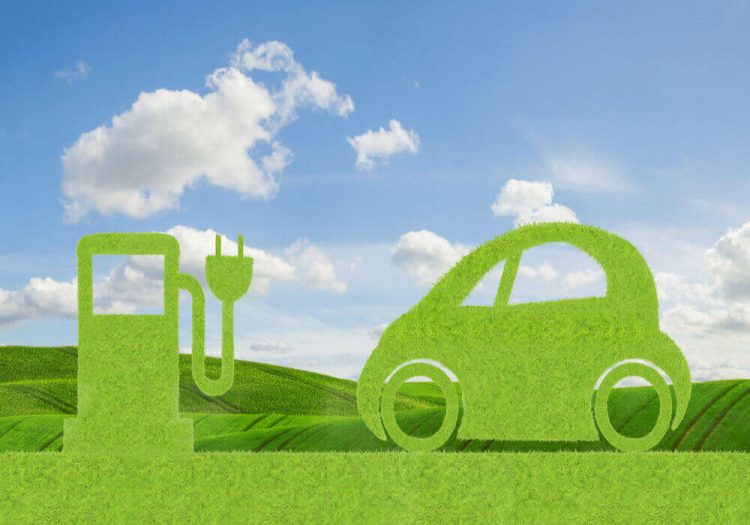1. Analyze the Impact of ICE Vehicle Bans on Automakers, Consumers, and the Economy
The growing pressure to combat climate change has led many governments around the world to propose or implement bans on new internal combustion engine (ICE) vehicles. These bans, which aim to phase out the production and sale of gasoline and diesel-powered cars, are seen as a crucial step in reducing greenhouse gas emissions and accelerating the transition to electric vehicles (EVs). While this policy shift holds immense potential for reducing carbon footprints and improving air quality, it also raises significant challenges for automakers, consumers, and the broader economy.
Impact on Automakers
For automakers, the ban on ICE vehicles marks a monumental shift in the industry. Historically, the automotive industry has been built around the internal combustion engine, with car manufacturers dedicating significant resources to research, development, and production of gasoline and diesel vehicles. The transition to electric vehicles is not only a technological leap but also a shift in the entire manufacturing and supply chain process. Automakers will need to invest heavily in developing electric vehicle platforms, batteries, and charging infrastructure to meet the growing demand for EVs.
Many of the largest global car manufacturers, including General Motors, Ford, Volkswagen, and Toyota, have already made significant strides toward electrifying their fleets, but the transition is not without its challenges. One of the main hurdles is the cost. Developing new electric vehicle technologies and retooling factories to produce electric vehicles can be expensive. These costs are exacerbated by the need to secure a stable supply of key raw materials, such as lithium, cobalt, and nickel, which are essential for EV batteries.
Moreover, automakers that are slow to embrace this transition risk falling behind their competitors. The shift to EVs is no longer just an environmental or regulatory requirement but a competitive necessity. Automakers who fail to transition to electric vehicles may find themselves losing market share, particularly as consumers become more environmentally conscious and demand cleaner alternatives to traditional cars.
Impact on Consumers
For consumers, the ban on ICE vehicles presents both opportunities and challenges. On one hand, the shift to electric vehicles promises long-term savings, as EVs generally have lower operating and maintenance costs compared to traditional gasoline-powered cars. Electric vehicles are more energy-efficient, and with fewer moving parts, they require less maintenance, which can significantly reduce long-term ownership costs. Additionally, many governments offer financial incentives, such as tax credits, rebates, and subsidies, to encourage consumers to purchase EVs, making them more affordable in the short term.
However, the transition may not be as straightforward for all consumers. One of the biggest concerns is the higher upfront cost of electric vehicles, which still tend to be more expensive than their ICE counterparts, despite falling prices in recent years. While the cost of EVs is expected to decrease as battery technology improves, for many consumers, especially those in lower-income brackets, the upfront price may still be a barrier to entry.
Additionally, consumers may face challenges related to charging infrastructure. While the availability of public charging stations is growing, there are still significant gaps in coverage, particularly in rural areas. The convenience of owning an electric vehicle is contingent upon access to charging stations, and consumers who lack reliable access to home charging or local public chargers may be less inclined to make the switch to an EV. This could create a divide between urban and rural areas, with urban dwellers benefiting more from the transition due to better infrastructure.
There are also concerns about the range of electric vehicles, particularly for those who need to drive long distances regularly. Although newer EV models have made significant advancements in range, they still often fall short of the distance that can be covered by a full tank of gas in a traditional vehicle. This could lead to “range anxiety,” where consumers are hesitant to purchase EVs for fear that they may run out of charge before reaching their destination.
Impact on the Economy
The impact of ICE vehicle bans on the broader economy is multifaceted. On one hand, the transition to electric vehicles could create a significant number of new jobs in the electric vehicle industry, particularly in manufacturing, battery production, and renewable energy. As automakers shift toward EV production, there will be a growing demand for skilled workers in areas such as battery technology, electric drivetrains, and charging infrastructure. The expansion of renewable energy sources, like solar and wind power, will also create additional job opportunities as the energy sector shifts to support the growing demand for electricity to power EVs.
However, the transition away from ICE vehicles could also have negative economic consequences, particularly for regions and industries that are heavily dependent on traditional automotive manufacturing. The shift to electric vehicles may lead to job losses in sectors that produce components for gasoline and diesel engines, as well as in industries related to fossil fuels, such as oil refineries and gas stations. The transition may also affect the automotive supply chain, including suppliers of traditional car parts, such as engines, transmissions, and exhaust systems. These workers will need to be retrained for the new green economy, which could be a challenge for individuals and communities that are reliant on legacy industries.
Moreover, the demand for electric vehicles may exacerbate regional economic disparities. While some regions may thrive as EV manufacturing hubs, others could experience job losses and economic decline if they are unable to pivot toward electric vehicle production or adapt to the new industry standards.
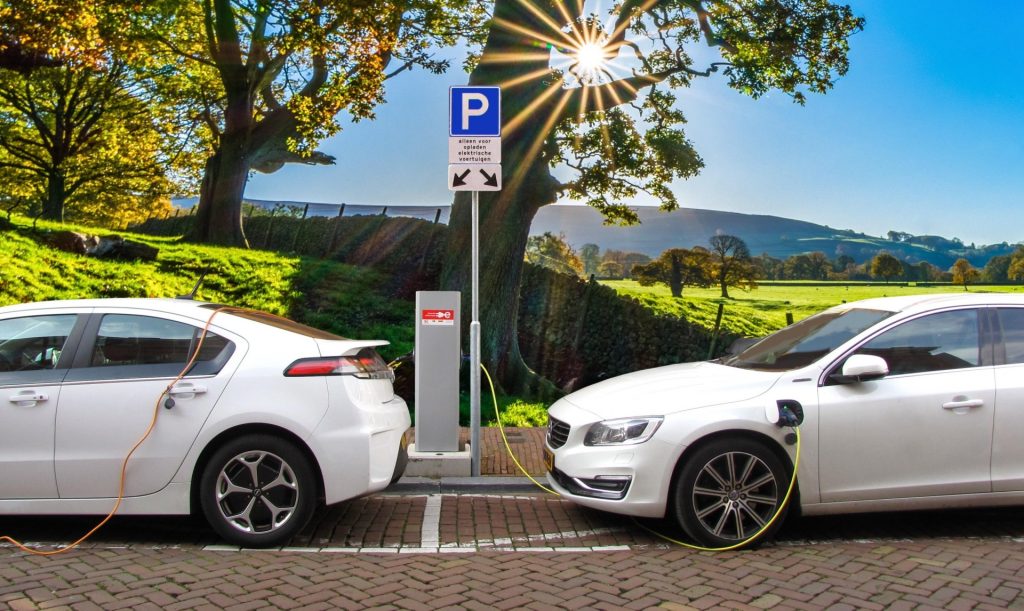
2. Discuss the Challenges of Enforcing Bans and Ensuring a Just Transition
While the prospect of banning internal combustion engine vehicles is appealing from an environmental perspective, enforcing such a ban presents several challenges, especially when considering a just and equitable transition for all stakeholders.
Enforcing the Ban
One of the key challenges of implementing ICE vehicle bans is enforcement. While banning the sale of new ICE vehicles may be relatively straightforward, phasing out existing vehicles from the roads is a more complex task. Governments will need to decide whether they will also set a timeline for banning used ICE vehicles or whether they will allow these vehicles to remain on the road until they are retired or sold. If the policy is too aggressive, it could lead to a backlash from consumers who feel that they are being forced to switch to electric vehicles before they are ready or before EVs are affordable or widely available.
The enforcement of such bans will require robust regulatory mechanisms to ensure that automakers comply with production deadlines, and that vehicles are being retired in a way that is both environmentally responsible and economically viable. Moreover, governments will need to monitor and address illegal activities, such as the continued production and sale of unauthorized ICE vehicles, to ensure that the ban is effectively implemented.
Ensuring a Just Transition
A key concern when enforcing ICE vehicle bans is ensuring that the transition is just and equitable, especially for low-income and marginalized communities. Many of these communities rely heavily on affordable second-hand vehicles, many of which are internal combustion engine models. For these groups, switching to an electric vehicle may not be a viable option due to high upfront costs, limited access to charging infrastructure, and lack of alternative transportation options.
To ensure a just transition, governments will need to provide targeted support for these communities, including financial incentives for low-income consumers, expanded access to public transportation, and the development of community-based charging infrastructure. Furthermore, retraining programs for workers who may be displaced by the shift to electric vehicles will be essential. These programs should focus on providing workers with the skills needed for new jobs in the green economy, particularly in industries related to electric vehicle production, renewable energy, and sustainable infrastructure.
Governments should also prioritize the development of affordable, accessible, and clean transportation options for rural and underserved communities. These areas are often overlooked in broader infrastructure plans, and without careful planning, they may be left behind as urban centers experience faster adoption of EVs and related technologies.
3. Explore Alternative Policies, Such as Carbon Pricing and Emissions Trading
While a direct ban on ICE vehicles is one policy approach, there are alternative strategies that governments can use to drive emissions reductions and accelerate the transition to cleaner transportation.
Carbon Pricing
One alternative to outright bans is carbon pricing, which puts a price on the carbon emissions produced by vehicles. This can take the form of a carbon tax or a cap-and-trade system, both of which incentivize consumers and businesses to reduce their emissions by making carbon-intensive activities more expensive. By raising the cost of gasoline and diesel fuels through carbon pricing, governments can encourage the adoption of electric vehicles and other low-emission transportation options.
Carbon pricing has the advantage of flexibility, allowing consumers and businesses to make decisions based on their own circumstances. Rather than imposing a ban on ICE vehicles, governments can use carbon pricing to make fossil fuel-based transportation less financially attractive, creating an economic incentive for consumers to switch to electric vehicles. This market-driven approach can complement other policies, such as incentives for EVs and infrastructure development, to accelerate the transition to zero-emission transportation.
Emissions Trading
Another policy alternative is emissions trading, which allows companies to buy and sell emission allowances in a regulated market. Under such a system, automakers would be required to reduce the emissions of their fleets over time, and they could trade emissions credits to meet regulatory targets. This approach provides flexibility, allowing companies to choose the most cost-effective way to reduce emissions while still achieving overall environmental goals.
Emissions trading can be a powerful tool for achieving emissions reductions, but it requires careful design to ensure that the system is fair and transparent. It also needs to be paired with strong enforcement mechanisms to prevent loopholes and ensure that emissions reductions are real and measurable.
Conclusion
The road to zero emissions is a challenging but necessary journey. While bans on internal combustion engine vehicles offer a clear path toward reducing greenhouse gas emissions, they come with significant challenges for automakers, consumers, and the broader economy. The transition will require careful planning to ensure that it is equitable and just for all stakeholders, including low-income and marginalized communities. Alternative policies, such as carbon pricing and emissions trading, can complement or even replace bans, providing market-driven incentives to accelerate the adoption of electric vehicles. As the world moves toward a more sustainable future, policymakers must strike a balance between ambitious goals and practical, fair solutions to ensure a successful and equitable transition.



